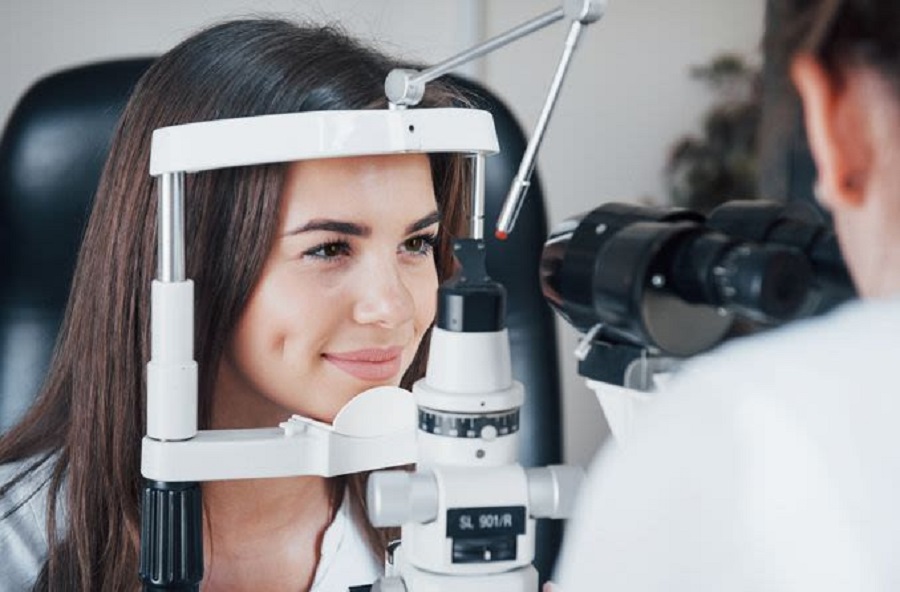
Scheduling an eye exam in Louisville is a smart move for anyone wanting to maintain good eye health. Whether it’s your first time visiting an optometrist or you’re a regular, preparation is key to making the most of your appointment. To help ensure you’re ready, we’ve compiled a checklist of essential things to bring and steps to take before walking into your eye doctor’s office. Let’s dive into what you need to prepare so your eye exam experience can go as smoothly as possible.
Start with Your Eye Health History: What Your Doctor Needs to Know
Before heading to your eye exam, one of the most important things you can do is gather your medical history. Your optometrist will want to know about any previous eye conditions you’ve had, whether it’s something common like near-sightedness or a more complex condition like glaucoma. Your medical history will also include details on any surgeries you’ve undergone or significant health issues, such as diabetes or high blood pressure, which can affect your vision.
It’s a good idea to take some time before your appointment to write these details down. If you’ve visited different eye doctors in the past, compile notes from those visits too. This gives your current eye doctor a clearer picture of your overall eye health. The more information they have, the better they can tailor the exam to meet your specific needs.
Once you’ve compiled your medical history, move on to reviewing your current medications to give your doctor an even more comprehensive overview.
Medications Matter: Create a List of Current Meds
Another crucial step before your eye exam is to create a detailed list of all medications you’re currently taking. Some medications can have side effects that impact your vision, such as causing dryness, blurriness, or light sensitivity. These issues may not be permanent, but they can alter the results of your eye exam.
In addition to listing prescription medications, don’t forget about over-the-counter medicines, supplements, or herbal remedies. Even these can interact with your eye health, so it’s essential to provide your optometrist with a comprehensive list. If you’re unsure whether a specific medication affects your vision, make a note to ask your eye doctor about it during the exam.
After you’ve completed this task it’s time to ensure you have the necessary identification and insurance ready for the day of your appointment.
Don’t Forget the Essentials: Bring Your ID and Insurance
Proper identification is important to have on hand when you check in for your eye exam. You’ll need two key pieces of documentation: your ID and your insurance card.
Your ID, whether it’s a driver’s license or another government-issued form of identification, is required to confirm your identity during the registration process. It ensures your records are accurate and tied to the correct patient profile. Alongside this, your insurance card is crucial for processing payments and determining coverage for the exam, potential treatments, or prescriptions.
In Louisville, most optometry offices will accept a variety of insurance plans, but it’s always best to check with the office ahead of time. Make sure your coverage is still active and that the office accepts your particular insurance to avoid any surprises during the appointment. If you’re unsure, call your insurance provider to verify your benefits for vision care.
With your ID and insurance in hand the next step is to clearly define what you hope to achieve from your eye exam.
Clarify Your Vision Goals: What Do You Want from Your Eye Exam?
Going into your eye exam with a clear understanding of your vision goals will help you and your optometrist get the most out of the appointment. Are you experiencing any discomfort or vision problems, such as blurry vision, difficulty reading, or frequent headaches? Or maybe you’re concerned about conditions like astigmatism or cataracts. It’s important to articulate these concerns during your visit.
Think about how your vision affects your day-to-day life. Do you need better distance vision for driving, or sharper near vision for reading or working on a computer? Being specific will allow your eye doctor to target the areas that matter most to you. If you already wear glasses or contacts, consider if you’re satisfied with them or if you feel your prescription might need updating. Preparing these details in advance makes the exam more efficient and ensures nothing is overlooked.
Once you have your vision goals in mind it’s a good idea to start planning for what happens after your appointment, especially if your eyes might be affected by certain procedures.
Prepare for Post-Exam Care: What to Expect After Your Visit
Depending on the type of eye exam you’re having, it’s essential to plan for what comes afterward. Some exams, especially those involving pupil dilation, may leave your eyes sensitive to light for a few hours. This sensitivity can make it difficult to drive or comfortably spend time outdoors, so consider arranging transportation if your appointment includes dilation.
If you’re unsure whether you’ll need assistance, call the office beforehand to find out if dilation is part of the exam. In some cases, eye doctors use advanced technology that allows them to avoid dilation, but this isn’t always guaranteed.
Another post-exam tip is to bring sunglasses with you. If your eyes are dilated, sunglasses can help protect them from bright light and prevent discomfort. Also, be aware that you might be advised to rest your eyes after certain procedures, so it’s a good idea to avoid scheduling intense visual tasks right after your appointment.
Lastly, make sure to allocate enough time for the appointment itself, so you won’t feel rushed.
Make Time for the Best Care: Block Out Your Schedule
Eye exams can sometimes take longer than expected, especially if you’re getting a comprehensive check-up or if further tests are required. It’s always smart to clear your schedule for at least a couple of hours on the day of your exam to ensure that you have enough time to complete the entire process without feeling rushed.
If you’re planning to purchase glasses or contact lenses during your visit, factor in additional time for selecting frames, trying on different styles, and having any necessary fittings done. Opticians are often available on-site to assist with these needs, but it can take some extra time depending on how busy the office is or how detailed your prescription needs are.
Pro Tips for a Smooth Eye Exam Experience
Being well-prepared for your eye exam doesn’t just stop with bringing the right paperwork or knowing your medical history. There are a few additional tips to make your experience even better:
-
Get a Good Night’s Sleep: Well-rested eyes will give more accurate test results. Tired or strained eyes might make it harder to read charts or follow instructions during the exam.
-
Avoid Eye Makeup: Skip heavy eye makeup or creams on the day of the exam, as these can interfere with certain tests. Eye drops may be used during your exam, and makeup could smudge or get in the way.
-
Drink Plenty of Water: Hydrated eyes are healthier eyes. Proper hydration can help reduce dryness or irritation during the exam.
-
Wear Comfortable Clothing: Choose something relaxed and comfortable for your appointment. You’ll want to be at ease during the exam, especially if it runs longer than expected.
Wrapping Up Your Eye Exam Preparation
Preparing for an eye exam may seem like a small task, but by following this checklist, you’ll ensure your appointment is as productive as possible. This preparation helps your optometrist understand your specific needs and ensures you’ll leave the appointment with a clear path forward for maintaining or improving your eye health. Whether it’s updating your prescription or addressing new vision concerns, a well-prepared patient is always on the path to better eye care.


